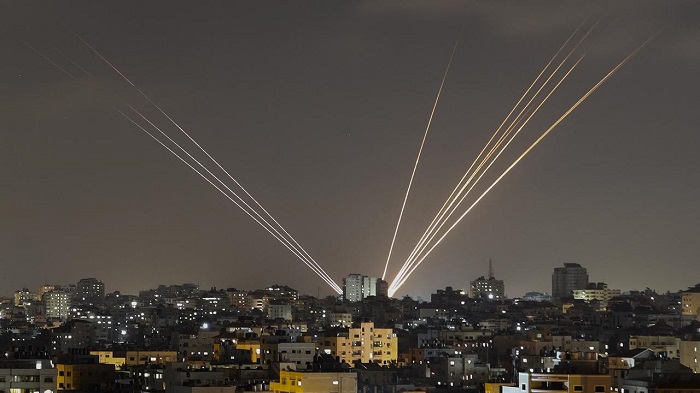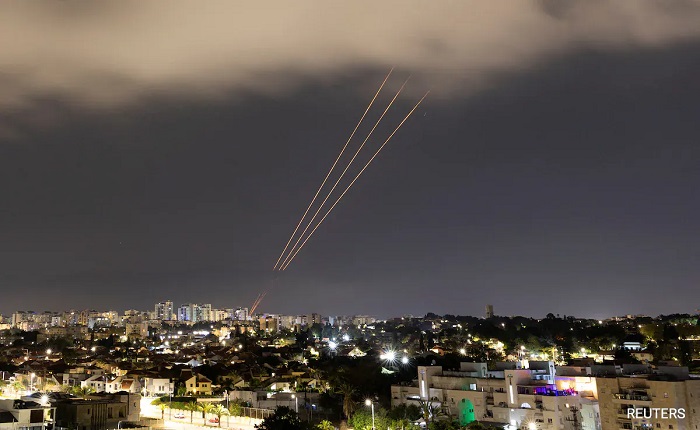World News
Iran Launches Drones, Missiles at Israel in Major Escalation
Iran launches drones and missiles at Israel in a major escalation, marking a direct conflict between the two long-time adversaries.

Iran launches drones and missiles at Israel in a major escalation, marking a direct conflict between the two long-time adversaries.
Most attacks were intercepted by Israel and its allies, though some missiles caused minor damage within Israel.
The attack was seen as retaliation for an earlier strike on Iran’s consulate in Syria.
In a significant and direct escalation of ongoing tensions, Iran has launched dozens of aerial drones and missiles at Israel.
This marks a notable shift from the long-standing shadow war between the two adversaries, which had previously involved Iran using proxy forces rather than direct attacks.
Israel’s military reported that they, along with allied countries, intercepted dozens of Iranian cruise missiles and drones, mostly outside Israeli airspace.
US President Joe Biden confirmed that the United States assisted Israel in downing nearly all the incoming attacks. He strongly condemned Iran’s actions, stating that Iran and its proxies in Yemen, Syria, and Iraq had executed an unprecedented air attack against military facilities in Israel.
The Islamic Revolution Guard Corps (IRGC) of Iran stated that the attack targeted specific objectives. Iran’s retaliation followed a strike on its consulate in Syria on April 1st that resulted in the deaths of seven IRGC officers. Iran accused Israel of carrying out the attack, although Israel did not confirm or deny the allegation.
Israeli Prime Minister Benjamin Netanyahu convened a war cabinet meeting and spoke with President Biden, who reiterated the US’s unwavering commitment to Israel’s security.

According to Israel Defense Forces (IDF) spokesman Rear Admiral Daniel Hagari, some Iranian missiles reached Israeli territory, causing minor damage to a military base without any casualties. A seven-year-old Bedouin girl was reported injured by shrapnel from falling debris.
Hagari described the Iranian assault as a significant escalation, with over 200 killer drones, cruise missiles, and ballistic missiles launched at Israel. Most of these were intercepted by Israel and its regional partners.
US forces also shot down several drones, though the specific details were not disclosed. The UK Ministry of Defence deployed RAF jets in Iraq and Syria to intercept possible airborne attacks, while sirens blared across Israel as air defense systems engaged objects over Jerusalem.
In response to the Iranian strikes, Israel, Lebanon, and Iraq closed their airspaces, and Syria and Jordan placed their air defenses on alert.
The IRGC declared that the attack was a retaliation for Israel’s “repeated crimes,” including the alleged attack on Iran’s consulate in Damascus. Prime Minister Netanyahu assured that Israel’s defensive systems were prepared for any situation.
UK Prime Minister Rishi Sunak condemned the “reckless” attack and reaffirmed the UK’s support for Israel’s security. UN Secretary General António Guterres called for an immediate halt to hostilities, emphasizing the severe risk of further conflict.
The UN Security Council is set to hold an emergency meeting over the situation, as the international community expresses concern over the potential for a broader conflict in the region.
























You must be logged in to post a comment Login